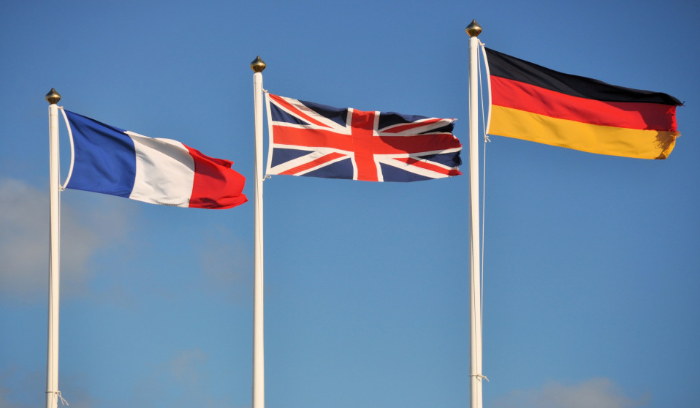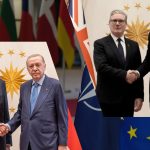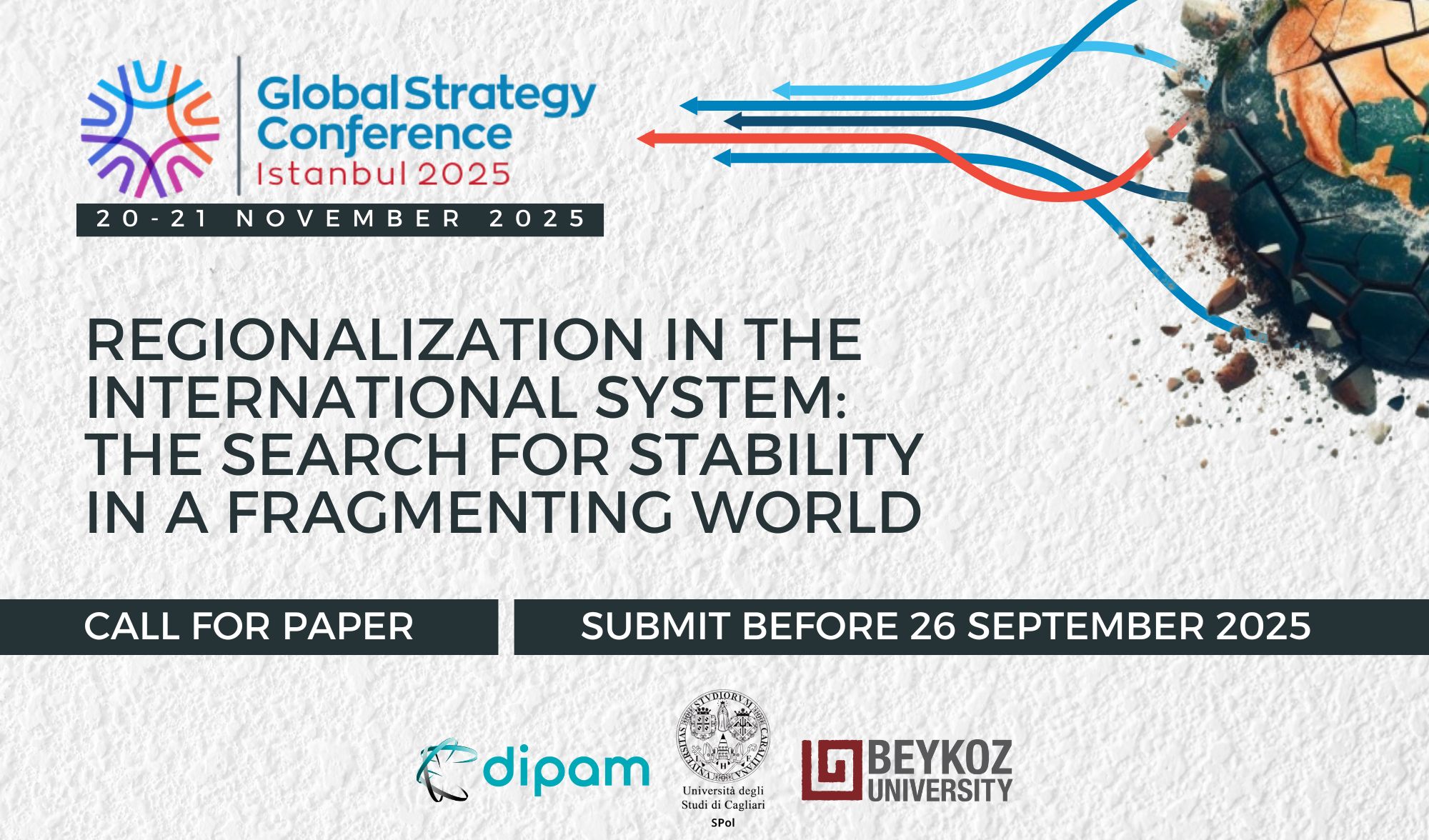The UK has attracted attention with two important visits in the last two weeks. First, French President Emmanuel Macron visited London, followed by German Chancellor Friedrich Merz. Looking at the timing and content of these back-to-back visits, amid increasing global turmoil, there are some quiet but significant signs of revival in the E3, a trio consisting of the UK, France, and Germany.
Originally established as a temporary coalition focused on Iran’s nuclear program, the E3 is now re-emerging as a cornerstone of European security diplomacy, with the group returning to the heart of European security.
British Prime Minister Keir Starmer is working to stabilize the severed ties between the UK and the European Union (EU) following Brexit, while also seeking to leverage the current situation to his advantage. This shift also signals a new strategic direction for the Labour Party government.
Historic agreement between the United Kingdom and Germany
Berlin and London were not previously bound by any friendship agreement. Despite the potential for expansion of their diplomatic and commercial relations since World War II, at least until Brexit, these two powers had not felt the need to enter into a bilateral agreement. However, during this visit, Starmer and Merz met at the famous Victoria and Albert Museum in London’s Kensington district and signed the 23-page Kensington Agreement between the two countries.
This agreement has two main pillars. First, the text is a broader friendship agreement with a political structure that includes deeper bilateral coordination, such as regular summits every two years. On the other hand, there are six key elements of cooperation in the agreement. These elements include broader diplomatic cooperation on geopolitical issues; defense and security; coordination on internal security and combating illegal migration; economic ties, science, and research cooperation; the development of people-to-people contacts; and cooperation on energy and climate policies. It is clear that the agreement focuses on cooperation in the areas of foreign policy, security, and defense policy. In this regard, Germany and the UK commit to close coordination in multilateral forums such as NATO, the UN, and the G7, in addition to regular summits, while also emphasizing their support for positive EU-UK relations.
The Trinity House Agreement signed between the UK and Germany last year is undoubtedly one of the key developments in the process leading to this agreement. This agreement represents the final and significant step in London’s search for a defense cooperation formula outside the EU. After all, Germany and the UK are the two countries in Europe with the highest defense spending. At this point, the agreement includes structured cooperation in defense industry projects such as deep precision strike capability, defense export coordination, cooperation in NATO’s eastern flank and the North Sea, as well as a bilateral mutual defense clause in addition to existing NATO commitments. The Kensington Agreement expands, clarifies, and deepens previous defense arrangements caused by Russia’s aggression.
Developing defense cooperation between France and the United Kingdom
A week before this agreement, direct steps toward defense cooperation were also taken during Macron’s visit to the United Kingdom. The Lancaster House Agreement, signed in 2010 when the UK had not yet left the EU, provided for cooperation in response to the threats of the time. The agreement signed on July 10, 2025, reshaped the two countries’ defense conditions and threat perceptions today.
This agreement, which includes an unprecedented joint nuclear declaration committing to the coordination of the two countries’ independent nuclear deterrents, not only provides for coordination between Paris and London on the operational use of nuclear forces, but also requires joint efforts in nuclear research and the joint development of long-range weapon systems. As a result of this agreement, the Storm Shadow/SCALP cruise missile will be enhanced, and production lines will be modernized. Additionally, the development of a new longer-range air-to-air missile will expand munitions options.
Even if the three countries do not sign complementary agreements among themselves, the E3 remains a deliberately flexible arrangement, unlike multilateral agreements or supranational institutions. At the same time, E3 allows the United Kingdom, France, and Germany—Europe’s three largest military and economic powers—to coordinate quickly on foreign policy, defense, and migration without the procedural burdens of Brussels.
The need to reaffirm NATO conditions
As US President Donald Trump withdraws from the continent, his counterparts in Europe’s most powerful countries are building parallel diplomatic and defense institutions for a future without Washington as the primary guarantor of economic and military security.
The United Kingdom is effectively positioning itself at the center of a new tripartite defense arrangement. This position, despite the fact that all three countries are already bound by similar NATO commitments, allows London to reaffirm its mutual defense commitments, update and clarify practical steps to enhance defense cooperation.
In particular, Article 3 of the Kensington Agreement provides for the parties to reaffirm their deep commitment to mutual defense and assistance in the event of an armed attack against the other party, including military means, as close allies. In this context, the question arises as to why Article 5 of the NATO Charter is necessary.
Unusually for a bilateral agreement, it explicitly mentions the aim of intensifying trilateral cooperation between the United Kingdom, Germany, and France. The agreement thus completes the triangle of previous bilateral agreements between the three countries, including the defense-focused UK-France Lancaster House Agreement and the more comprehensive France-Germany Elysee and Aachen agreements. With the agreements signed in recent days, the three major European powers are now linked by bilateral agreements.
Sometimes referred to as the “triangular alliance,” the UK, France, and Germany are already partners through other organizations, including NATO and the US. Officials from the three European countries are careful to point out that the institutions they are building are not meant to replace these alliances, but to support them.
However, NATO is a vast defense bureaucracy representing 32 countries, some of which do not share the same views. At this point, officials in Berlin, London, and Paris are seeking to establish a smaller, more agile group to respond to the situation Merz described on Thursday as a shift in relations between Europe and the United States.
This article has been published by Anadolu Agency (in Turkish) on July 23, 2025.










